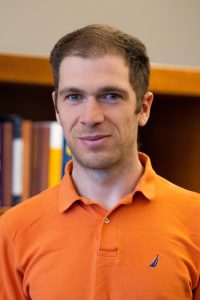
John Pardon became a permanent member of the Simons Center on September 1, 2022. He received his A.B. in Mathematics from Princeton University in 2011 as valedictorian and his Ph.D. from Stanford University in 2015, studying under Yakov Eliashberg. He was Assistant Professor at Stanford for one year before moving to Princeton as Professor in 2016, and then to the Simons Center in 2022.
Pardon’s research lies in the neighboring fields of geometry and topology. His early research included topics such as the convexification of simple closed curves in the plane, concurrent normals to convex bodies in Euclidean space, and random polygons. While still an undergraduate at Princeton, he solved a 30 year old problem of famed Russian mathematician Mihkail Gromov about the distortion of knots. He has studied “rough” (non-differentiable) group actions on three-manifolds, proving the Hilbert–Smith conjecture and Edmonds’ smoothing conjecture for such actions. His more recent work concerns pseudo-holomorphic curves in symplectic manifolds, both technical aspects of the moduli spaces of such curves, as well as the structure of the Fukaya categories arising from their enumeration.
In 2012 he was awarded the Frank and Brennie Morgan Prize for undergraduate research for his solution to Gromov’s distortion problem. In 2015 he was awarded a Clay Research Fellowship. In 2017 he received a Packard Fellowship and the Alan T. Waterman from the National Science Foundation for his contributions to geometry and topology. In 2022 he received the Clay Research Award for his work on Fukaya categories.

